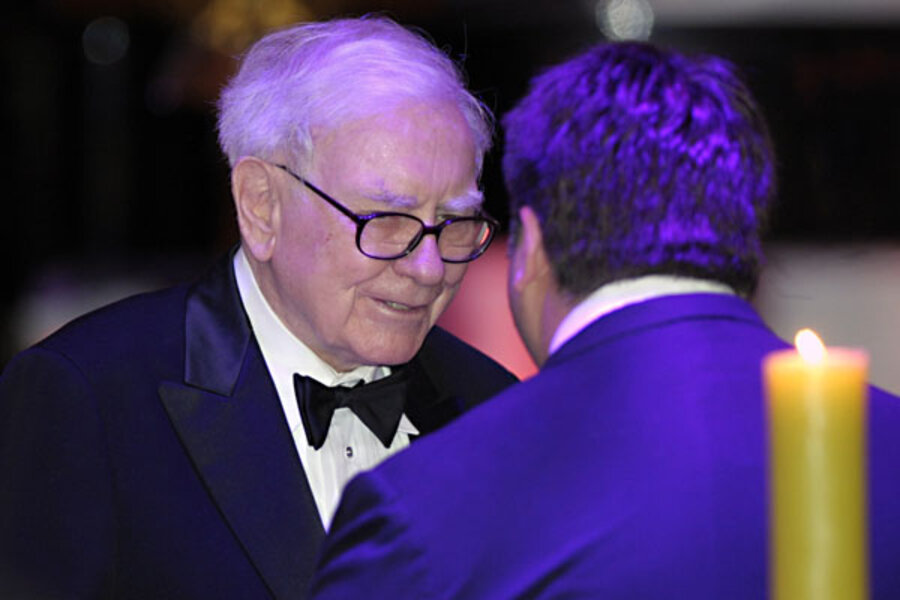Why the 'Buffett rule' isn't enough
Loading...
Next Monday most Americans will be filing their income taxes for tax year 2011. This year, though, tax day has special significance. If there’s one clear policy contrast between Democrats and Republicans in the 2012 election, it’s whether America’s richest citizens should be paying more.
Senate Democrats have scheduled a vote Monday on a minimum 30 percent overall federal tax rate for everyone earning more than $1 million a year. It’s nicknamed the “Buffett Rule” in honor of billionaire Warren Buffett who has publicly complained that he pays a lower tax rate than his secretary.
No one in Washington believes the Buffett Rule has any hope of passage this year. It’s largely symbolic. The vote will mark a sharp contrast with Republican Paul Ryan’s plan (enthusiastically endorsed by Mitt Romney) to cut the tax rate on the super rich from 35 percent to 25 percent – rewarding millionaires with a tax cut of at least $150,000 a year. The vote will also serve to highlight that Romney himself paid less than 14 percent on a 2010 income of $21.7 million because so much of his income was in capital gains, taxed at 15 percent.
Hopefully in the weeks and months ahead the White House and the Democrats will emphasize three key realities:
1. The richest 1 percent of Americans are now taking in over 20 percent of total national income, and so far have raked in almost all the gains from this recovery. Thirty years ago, the richest 1 percent got 9 percent of total income. Income and wealth are now more concentrated at the top than they’ve been since the 1920s.
2. The richest 1 percent are paying a lower tax rate than they’ve paid since 1980. For three decades after World War II, their tax rate never dropped below 70 percent. Even considering all deductions and tax credits, they paid close to 55 percent. Under Eisenhower, the top rate was 91 percent and the effective rate was 58 percent.
3. Right now the nation faces two yawning deficits – an investment deficit and a federal budget deficit. The investment deficit includes deferred maintenance on America’s infrastructure – roads, bridges, public transit, water and sewer systems that are all crumbling – and an educational system that’s being starved for resources (the federal government pays for 8 percent of K-12 education and about 5 percent of public higher education, but could do much more). The federal budget deficit is projected to mushroom to $6.4 trillion over the next ten years, mostly because of aging boomers and soaring healthcare costs.
Any serious person looking at these three realities would conclude that the rich should be paying far more. It’s not just a matter of fairness; it’s also a matter of patriotism.
In fact, given these realities, the Buffett Rule sets the bar too low. For most Americans, wages and benefits are declining (adjusted for inflation), net worth has been plummeting (their only asset is their homes), and the public services they rely on have been disappearing. For the top, it’s just the opposite: Their incomes are rising, their stock-market portfolios have been growing, and a growing portion of their earnings has been subject to a capital-gains tax of just 15 percent.
The Buffett Rule would generate only about $47 billion in extra revenues over the next decade, according to congressional estimates. Why not restore top rates to what they were before 1980, and match the capital-gains rate to the income-tax rate?








